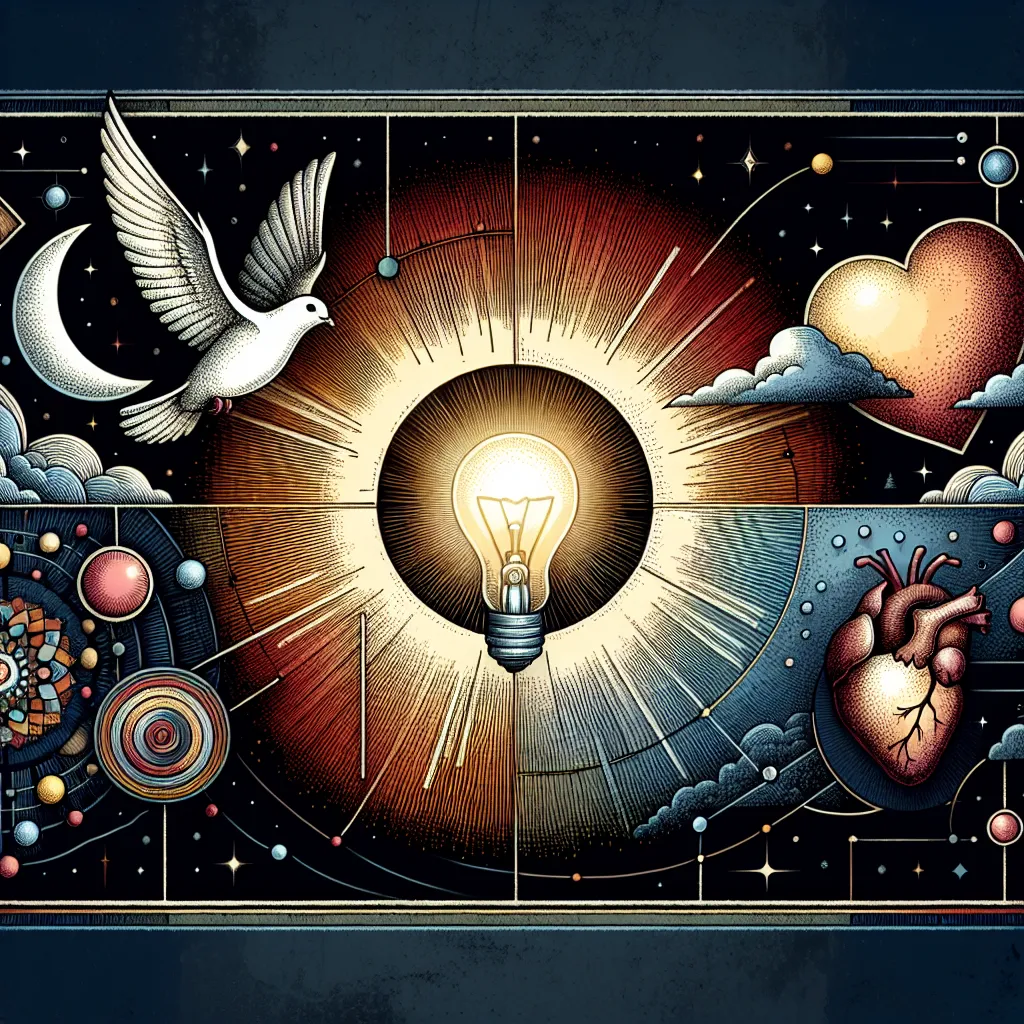The phrase “be symbolic of + noun” is a powerful and nuanced expression that can significantly enhance your IELTS performance. This structure is frequently used in both the Writing and Speaking sections of the IELTS test, particularly when discussing cultural symbols, national icons, or abstract concepts. Let’s delve into its meaning, usage, and how to effectively incorporate it into your IELTS responses.
Nội dung bài viết
- Understanding “Be Symbolic of + Noun”
- Grammar and Structure
- Applying “Be Symbolic of + Noun” in IELTS Writing
- Task 2 Essay Example
- Task 1 Report Example
- Utilizing “Be Symbolic of + Noun” in IELTS Speaking
- Part 2 Example (Cue Card)
- Part 3 Example
- Advanced Usage for Higher Band Scores
- Common Mistakes to Avoid
- Conclusion
Understanding “Be Symbolic of + Noun”
The phrase “be symbolic of + noun” is used to express that something represents or stands for a larger idea, concept, or value. It’s a way of saying that an object, action, or event has a deeper meaning beyond its literal interpretation.
For example:
- The dove is symbolic of peace.
- The color red is often symbolic of passion or danger.
- In many cultures, a handshake is symbolic of agreement or friendship.
 Symbolic representations
Symbolic representations
Grammar and Structure
The basic structure is:
[Subject] + is/are + symbolic of + [noun/noun phrase]
It’s important to note that the subject can be singular or plural, and the verb (is/are) should agree accordingly. The noun or noun phrase following “symbolic of” represents the larger concept or idea.
Applying “Be Symbolic of + Noun” in IELTS Writing
Incorporating this phrase into your IELTS Writing tasks can elevate your language use and demonstrate a sophisticated understanding of symbolism and cultural significance.
Task 2 Essay Example
Consider this Task 2 question: “Some people believe that certain cultural symbols are no longer relevant in modern society. To what extent do you agree or disagree?”
In your response, you could write:
“While some argue that traditional symbols have lost their relevance, I believe many cultural icons remain significant. For instance, the Statue of Liberty is symbolic of freedom and opportunity, values that continue to resonate with people worldwide. Similarly, the Great Wall of China is symbolic of perseverance and national unity, concepts that are still highly relevant in today’s globalized world. These enduring symbols serve as reminders of our shared human values and historical heritage.”
Task 1 Report Example
Although less common in Task 1, you might use this structure when describing graphs or charts that represent cultural or social trends:
“The graph shows a sharp increase in the number of people visiting historical monuments over the past decade. This trend is symbolic of a growing interest in cultural heritage among the younger generation.”
Utilizing “Be Symbolic of + Noun” in IELTS Speaking
In the Speaking test, using this phrase can help you express complex ideas concisely and impressively.
Part 2 Example (Cue Card)
Topic: Describe a traditional celebration in your country.
“In my country, the Lantern Festival is symbolic of reunion and harmony. During this celebration, families gather to release lanterns into the night sky, which is symbolic of letting go of past troubles and embracing hope for the future. The round shape of the lanterns is symbolic of completeness and perfection in our culture. This festival not only brings people together but also is symbolic of our cultural values of unity and optimism.”
Part 3 Example
Question: “How have national symbols changed in your country over time?”
“While some national symbols have remained constant, others have evolved. Our national flag, which is symbolic of our independence and unity, has not changed. However, new symbols have emerged. For example, certain modern buildings in our capital city are now symbolic of our country’s economic progress and technological advancement. These new symbols reflect our nation’s growth while coexisting with traditional ones.”
Advanced Usage for Higher Band Scores
To achieve higher band scores (7+), it’s crucial to use this structure accurately and in varied contexts. Here are some tips:
-
Combine with other advanced structures:
“The ancient temple, being symbolic of our spiritual heritage, has become not only a place of worship but also a focal point for cultural preservation.” -
Use in complex sentences:
“While the national anthem is symbolic of patriotism, its interpretation has evolved over time, reflecting changing societal values and a more inclusive definition of national identity.” -
Apply to abstract concepts:
“The recent environmental legislation is symbolic of a shifting attitude towards climate change, signaling a commitment to sustainability that was previously absent in policy-making.”
Common Mistakes to Avoid
-
Incorrect verb agreement:
Incorrect: “The flags is symbolic of national pride.”
Correct: “The flags are symbolic of national pride.” -
Using with inappropriate nouns:
Incorrect: “This car is symbolic of speed.” (Too literal)
Better: “This sports car is symbolic of luxury and status.” -
Overuse:
Avoid using this phrase too frequently in your responses. Variety is key to achieving a high band score.
Conclusion
Mastering the use of “be symbolic of + noun” can significantly enhance your IELTS performance. It allows you to discuss abstract concepts, cultural significance, and deeper meanings in a sophisticated manner. Practice incorporating this structure into your writing and speaking to express complex ideas concisely and effectively. Remember to use it judiciously and in combination with other advanced language structures to showcase your linguistic prowess in the IELTS exam.
For further practice, consider how you might use this phrase to discuss topics like national monuments, traditional customs, or even modern technological advancements and their symbolic significance in today’s world.


